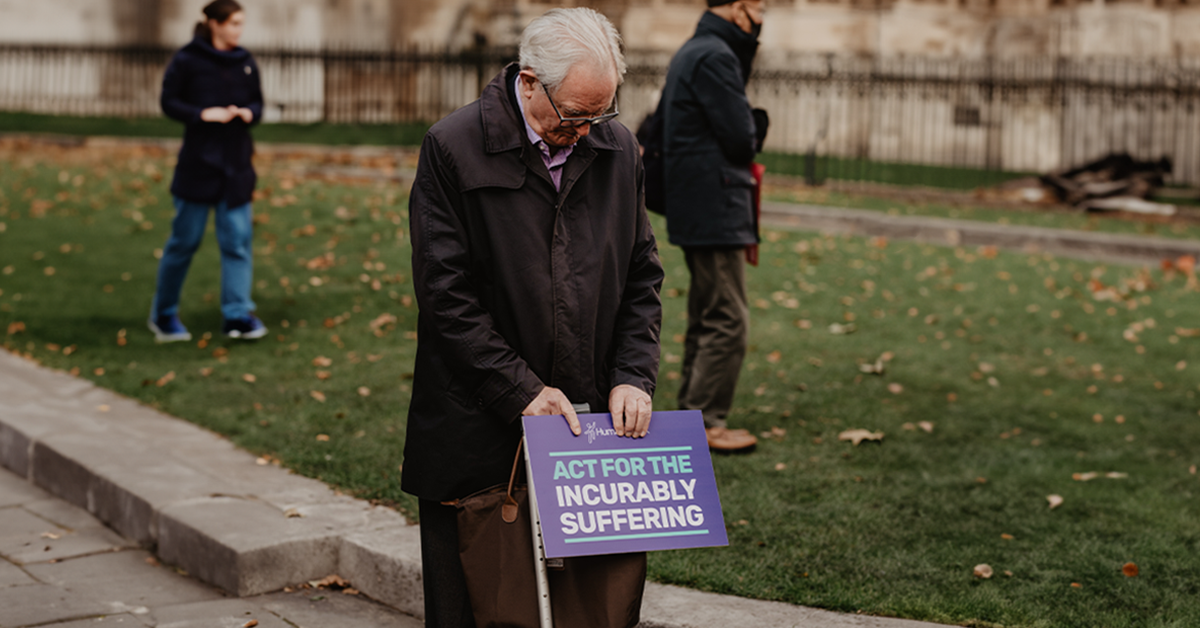
Humanist UK has criticised a report produced by the ethics review in Jersey, which concludes against allowing people who are incurably suffering but not necessarily terminally ill, the opportunity to access assisted dying services on the island.
Andrew Copson, Chief Executive of Humanist UK, said:
‘We’re greatly disappointed by the results of the review, which would condemn people in Jersey with neurological conditions like Motor Neurone Disease to suffer indefinitely. The reasons cited not to allow these people to be eligible are based on twisted arguments of abstract linguistics, a million miles away from the real-life experience of the incurably suffering.
‘Jersey held a citizens’ jury and two consultations on assisted dying. When I gave evidence to the jury, I experienced them asking intelligent and engaged questions on the inclusion of the incurably suffering. The jury ultimately voted in favour of including the incurably suffering and the consultations gave ample opportunity for ethical experts to contribute in-depth. The way in which this “ethics review” has been carried out in contrast seems poor practice.
‘We urge the health minister to ensure that proposals submitted to Jersey’s parliament for debate include the incurably suffering so that they can have the opportunity to vote to allow people who are experiencing enormous suffering the choice to end their lives without pain and on their own terms.’
The report itself acknowledges that only allowing people who are terminally ill to access assisted dying ‘may offer small comfort to people who might endure suffering for years before this point is reached.’
Now the review has been completed, a ministerial working group will work to refine the proposals. This will take into consideration the consultation feedback and the external ethics review.
Arguments against including a route for people who are incurably suffering are cited as ‘linguistically awkward, since it is arguably inaccurate and potentially misleading to refer to “assisted dying” when, absent the fatal intervention, the person in question is not actually dying’.
The report also claims ‘allowing AD as a response to unbearable suffering goes beyond the original remit of AD.’ This is despite the citizens’ jury on assisted dying held in 2021 overwhelmingly voting to include these criteria. 70% recommended that it should be available to adults of sound mind, who are either terminally ill or experiencing unbearable suffering, subject to robust safeguards.
Switzerland, Belgium, and the Netherlands have had assisted dying laws for decades which allow both the terminally ill and the incurably suffering the choice of an assisted death on their own terms. The laws there are safe, working, and supported by the public. Spain, Luxembourg, and Canada also allow assisted dying based on these criteria.
Notes
For further comment or information, media should contact Humanists UK Assisted Dying Campaigner Nathan Stilwell at press@humanists.uk or phone 07456 200033.
If you have been affected by the current assisted dying legislation, and want to use your story to support a change in the law, please email campaigns@humanists.uk
Read six reasons we need an assisted dying law.
Read more about a decade of campaigning for the legal right to die – at home and abroad.
Read the ONS study on suicides among people diagnosed with severe health conditions.
Read more about our campaign to legalise assisted dying in the UK.
Humanists UK is the national charity working on behalf of non-religious people. Powered by 110,000 members and supporters, we advance free thinking and promote humanism to create a tolerant society where rational thinking and kindness prevail. We provide ceremonies, pastoral care, education, and support services benefitting over a million people every year and our campaigns advance humanist thinking on ethical issues, human rights, and equal treatment for all.
